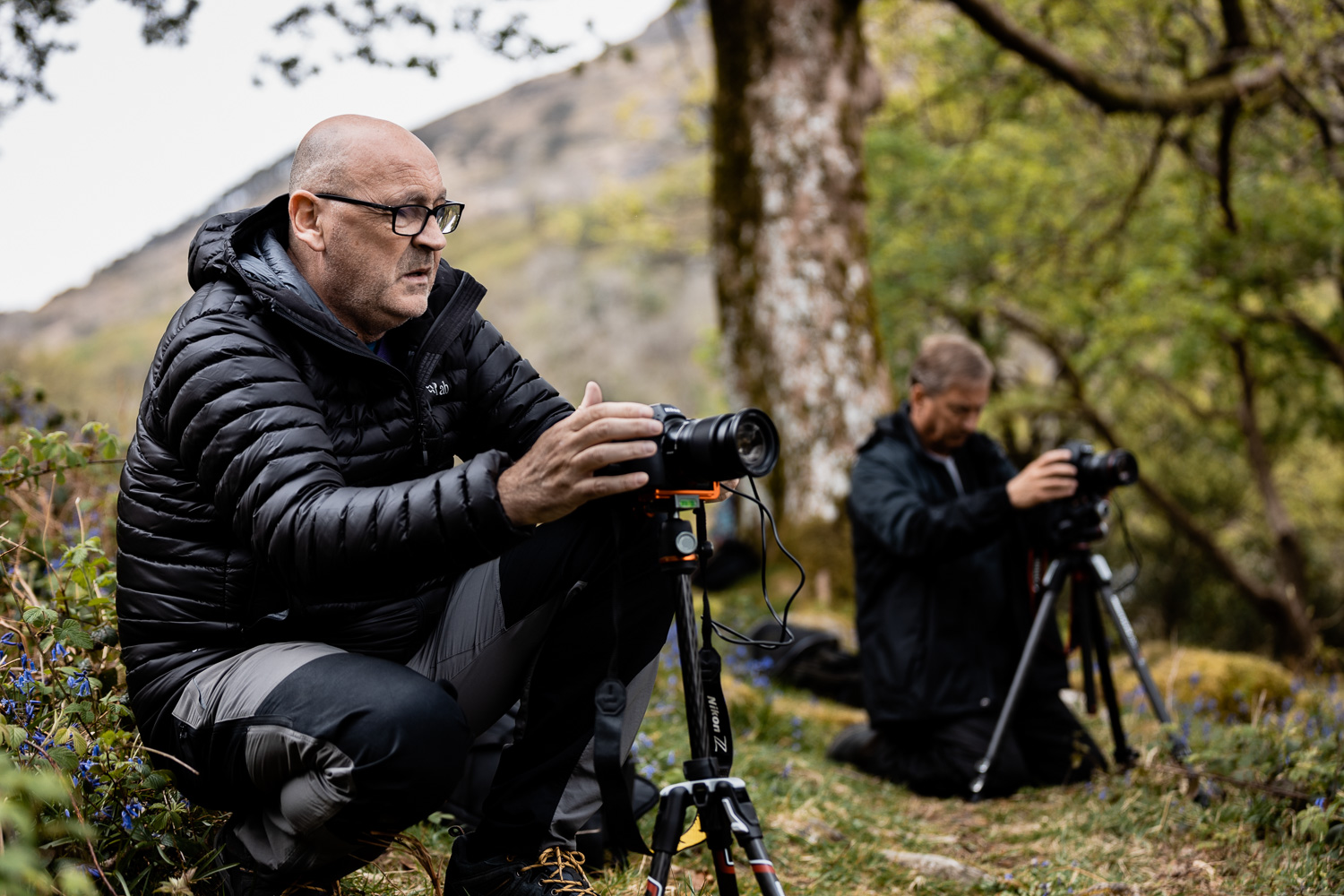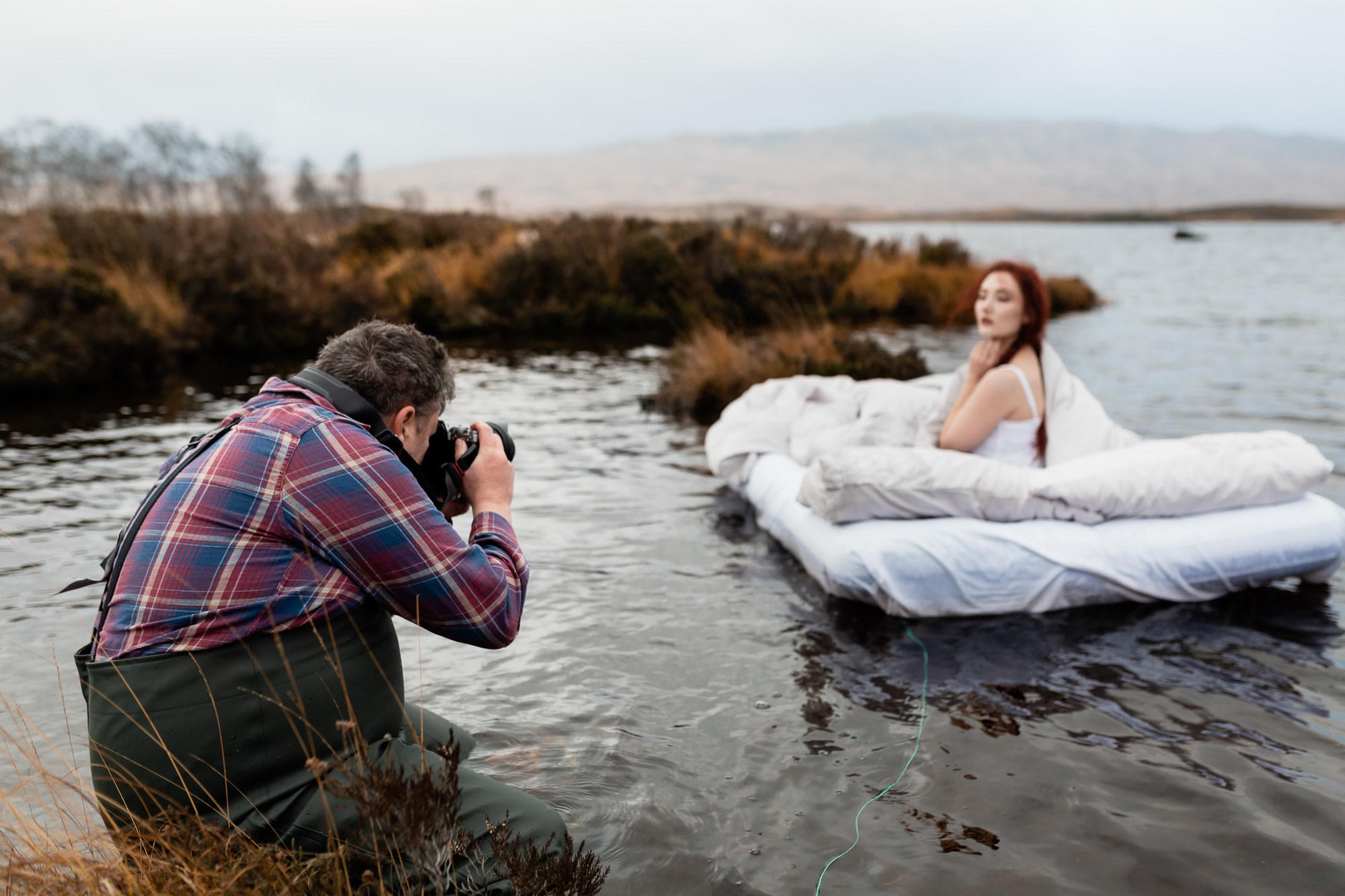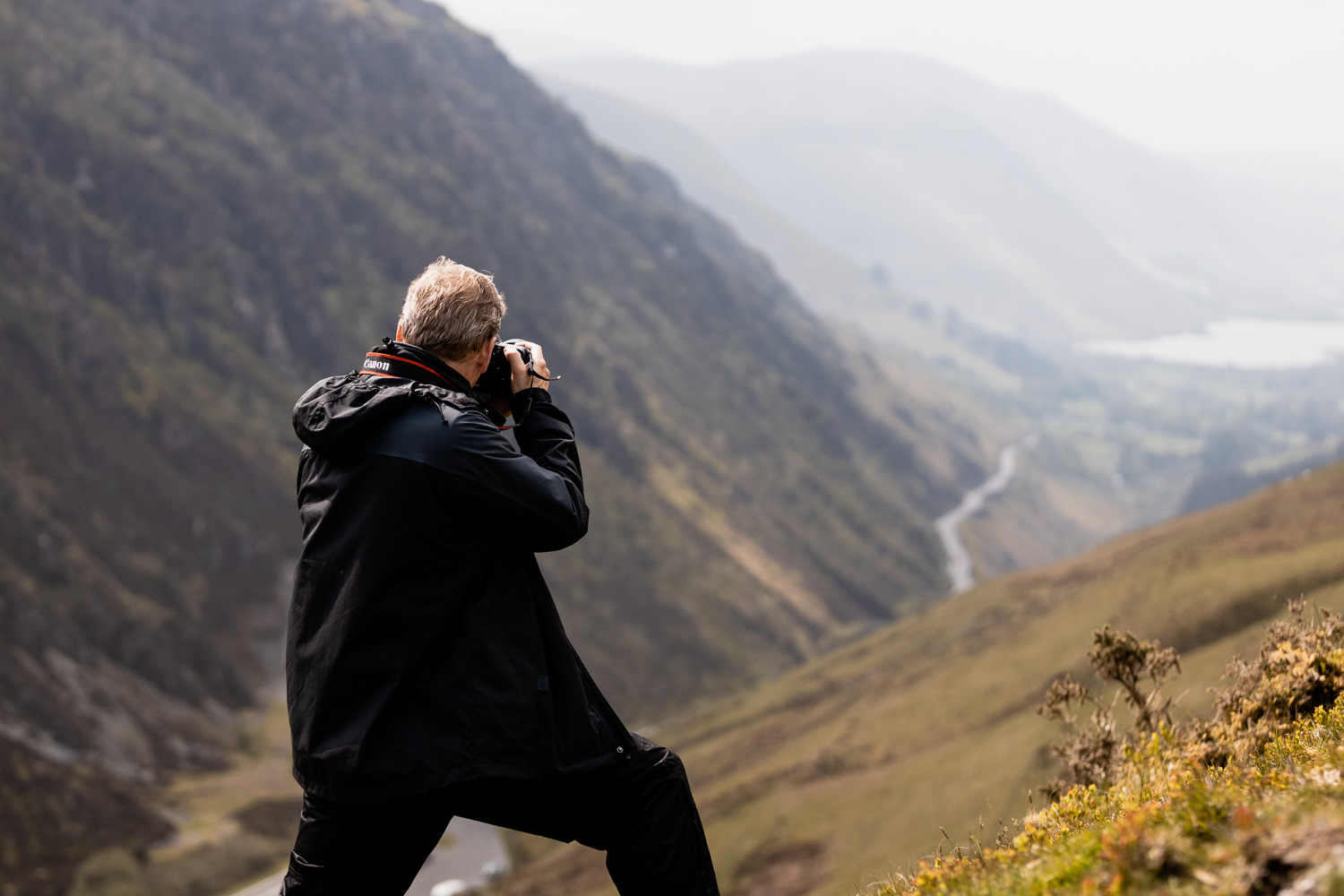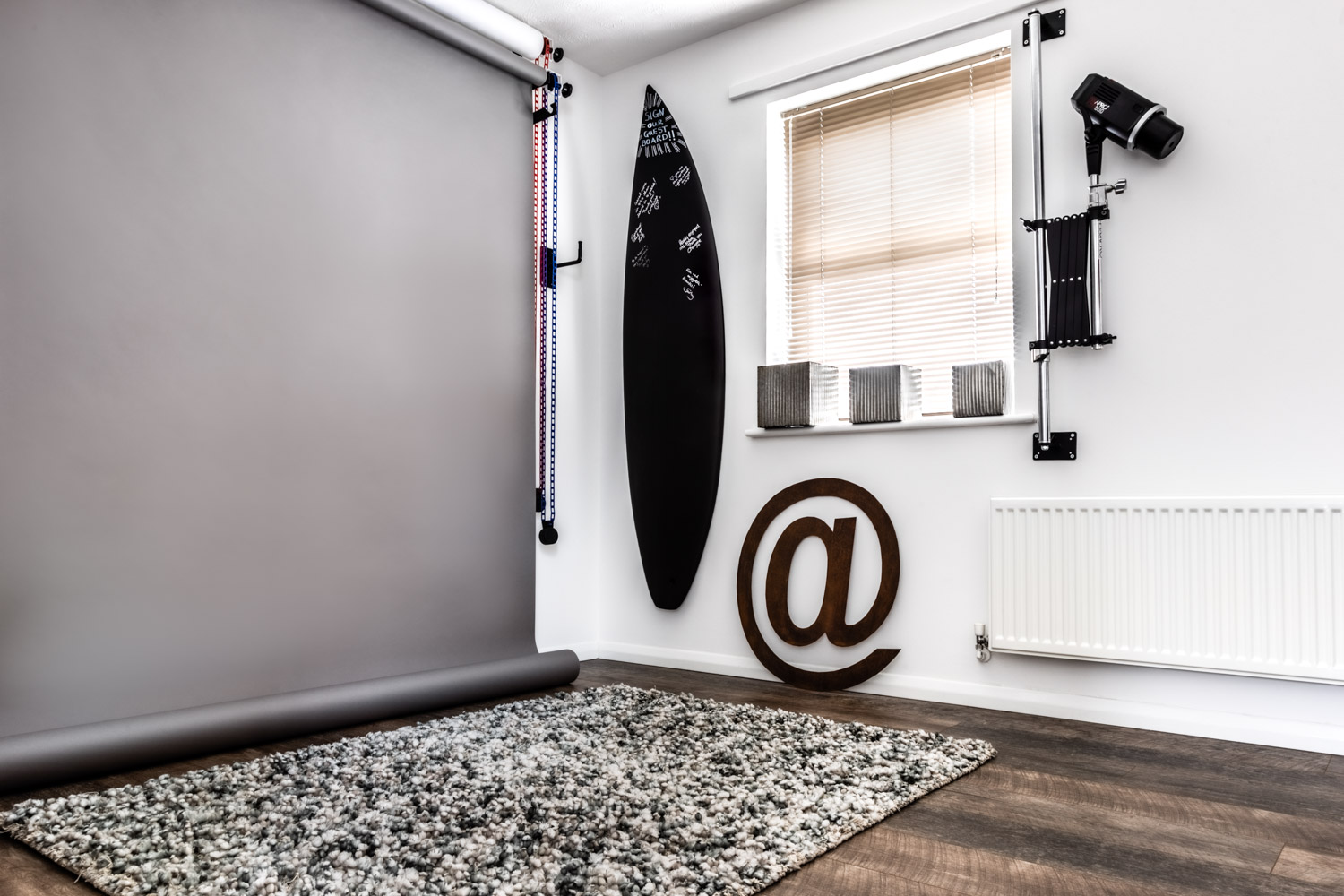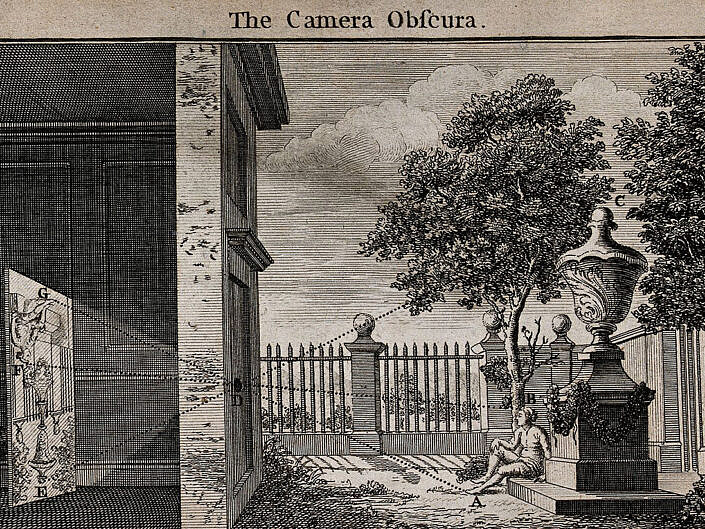Running your own photography business is the dream of many people. With cameras capable of producing high quality imagery now affordable and mass produced, photography has become an every day activity we all participate in whether with our phones or a modern DSLR or mirrorless camera.
Every year thousands of people start their own photography businesses and sadly, the majority of them fail. Not because their photo’s weren’t good, but because running a successful photography business is so much more than being able to take a good photograph.
Paul David Smith has been a professional photographer since 2008, here are his top tips for starting your own successful photography business.
1). Learn Your Craft
If you are going to run a general photography business then you need to ask yourself if you are able to take photographs in any situation that a client may throw at you.
You’ll need to know shutter speed, aperture, ISO, white balance, flash, composition and lighting back to front and inside out because your clients are going to test your abilities from day one.
Can you photograph a horse polo event which is taking place in a dark arena? Oh and you can’t use flash because it scares the horses?
Can you photograph a bride walking down the isle of a dark church on a gloomy day and make the pictures magical? Oh and you can’t use flash, the vicar doesn’t allow it.
Can you photograph e-commerce products to a quality they can be blown up and put on a billboard?
These are just examples of every day situations you’ll need to know how to deal with. So if you’ve just bought a camera and are using it in auto mode and don’t understand it, before you even think about starting a photography business, go and learn craft.
Learn photography, learn the exposure triangle and lighting and composition. You can easily learn all of these by taking some photography courses or going on a photography holiday with a professional for example. You can learn from Youtube or books, but before you proceed simply ask yourself this question:
Could I take a professional photograph in any situation that a client may throw at me? Do I know my camera and it’s settings well enough to do a great job regardless of what happens at the photoshoot?
If you answered yes, congratulations! Your ready to launch your new photography business.
2). Develop Your People Skills
When I first became a professional photographer I was competent with a camera. I know that I could get that shot no matter what the circumstances. But I hadn’t factored in that I was going to have to talk to strangers constantly all day every day and it was something that nearly stopped my career in its tracks.
My first commercial event job was an awards evening for a large travel company. The brief was to photograph people enjoying themselves at the event and then photograph them collecting the awards, no problem. However when I arrived the events organiser handed me a list of groups and the individuals in those groups. She then said they’d like a photograph of all 20+ groups taking please, however the people in each group were mingling in the pre-awards party and I’d need to locate the individuals in each group and get them all together. Oh and you only had 45 minutes to do it because that’s when the awards started.
Could you walk around a room of 300 people, band playing, people dancing, drinking and enjoying themselves and find Mary Jane Smith and the 5 friends in her group, explain you needed to photograph them and then do it 19 more times on a deadline?
You are going to have to approach strangers and deal with people constantly. Often drunk people if you are contemplating events and weddings. You’ll turn up to jobs not knowing a single person and need to just fit in with them from minute one like you’ve known them forever.
I overcame a huge amount of shyness in the first year or two of my photography career. I’ve met lots of people who haven’t been able to overcome that fear and it’s held them back from achieving their dreams.
So work develop your people skills, learn how to approach strangers and work with clients in a polite and friendly manner. How? Get out there and talk to people, the more you do it, the easier it gets.
3). Build Your Portfolio
Nobody is going to pay you money if they cannot see similar work to what they are hiring you for that you have shot previously. Want to be a wedding photographer? Your going to need a portfolio of wedding images. Want to be a product photographer? Your going to need to show potential clients shots of products you have photographed in the past.
The biggest mistake I see photographers make is that they put up a few products of some portraits of their friends and family on their social media or website and then expect to get work for product photography, weddings and commercial work from those images. It won’t happen.
You need to build a portfolio of images relative to every genre of photography you wish to offer so your potential clients can see the level of work you are going to produce for them.
This means you are going to end up doing some free jobs to start with or even paying to attend portfolio builder events. Think of this as you simply investing in your business.
When we moved to Newquay I decided I was going to start offering Surf Photography. However I didn’t have a photograph of a single surfer, so I went out one day, joined the surfers in the ocean and started photographing them. As soon as I knew I’d got a shot of one of them I swam over and told them I’d got a good shot of them and to contact me for it.
I spent a day working for free and giving away photographs. But I built an amazing portfolio of surf photography I could use to attract other surfers with. What also happened is those people I gave photos away to shared them on social, where there friends saw them and then contacted me as they wanted the same.
For photographers who want to enter the wedding industry, you can simply hire a male and female model (or use people you know), borrow a wedding dress from friends and family and stage your own mock wedding to build up your portfolio. If you don’t fancy doing it yourself you can attend wedding photography portfolio builders where someone else will have organised it for you.
Don’t be the person who makes excuses about why they can’t get images to promote themselves, you just need to make it happen. I once had a photographer attend one of our photography courses who wanted to be a dog photographer. The reason he hadn’t built his portfolio to promote himself in 3 years? He didn’t have time because he had a new dog he had to look after…
4). Time To Build Your Website
Yes you need a website. I know you might have put some photos on your new Facebook page with it’s 20 subscribers, but that is not a professional portfolio of your work that potential clients can view and find out more information about your services and what you offer.
Take the time to either learn how to build your own website, or pay somebody to do it for you.
Building a website these day’s isn’t really difficult with services like Squarespace and WordPress and such. I’m not going to explain how to build a website here, there are lots of resources out there for you to learn that, but just realise that if you don’t have a website showing your photography, it’s unlikely your going to get a ton of work as people will struggle to find you.
When you build your website, have a page for every genre of photography you want to offer. For example you might need:
– Portraits: This page will tell people about your portrait photography service, it will contain example images of portraits and have the prices and frequently asked questions for your portrait photography.
– Weddings: As above, but this page will all be about wedding photography only.
– Products: As above, but this page will all be about product photography only.
The biggest learning I can give you is that you are unlikely to get work for a service you are not showing example photographs for. everything needs its own place on your website, with its own page and its own information. Don’t try and mix everything on one page.
5). Marketing
It does not matter how good your photos are, if nobody knows you exist, you’ll never get any work.
This in my opinion is the biggest area every photographer who throws in the towel fails in. You need to learn how to market yourself and your business. If you are not taking photographs, you should be doing marketing.
It’s a huge topic and again there are countless resources out there where you can learn marketing and how to get people to your website. But the channels I’d be starting with are:
– SEO: Learn how to get yourself to the top of Google’s search results. The first thing most people who are looking for a photographer will do is grab their phone and search Google for one. It’s a fairly simple thing to learn and it’s free. Concentrate on your local area rather than trying to crack the entire world. For example try and get ranking for “Photographer In Sheffield” rather than “Photographer UK”
– PPC: These are the paid ad’s at the top of Googles search results. You can pay Google to appear their instantly when somebody searches for a photographer in your area. You’ll pay for every click so you need to do some basic maths with your campaign.
Lets say 20 people click through to your website and for ease of maths it costs you £1.00 a click. You’ve paid Google £20.00 to get those 20 people to your site. Now not everybody who visits your website will become a customer, maybe only 1 of those 20 people will turn into a job. Now so long as that job is worth more than £20.00, you are in profit. Most jobs will be a lot more than £20.00, my average photography job is a few hundred pounds. So if I spend £20.00 to make £200.00 for example, that’s something IK can live with and it’s a good campaign.
– Email Marketing: Build up an email database and send out email newsletters maybe once a month or so telling people the latest news with your business, giving them special offers, advising of new services you offer, etc. You can send emails manually or use email marketing software like Mailchimp or SendInBlue.
– Social Media: Here is the key, don’t start social media channels if you are not going to post at least weekly to them. You need to be active on social and posting frequently for them to be a success. You can pick up a lot of work from social media, taking the time to learn how they work and how to grow your social media following will be worth your time.
There are 50 other marketing channels we could discuss but this should give you a good starting place. I didn’t manage to start a photography business because I was the best photographer in the world, I succeeded in starting a business because I was relentless with marketing and made sure a lot of people saw my work.
6. Buy Insurance
Sometimes it doesn’t matter how meticulously you’ve planned your shoot or how prepared you are feeling, things will inevitably go wrong. For this reason, you need to ensure that you have insurance.
The choice as to whether or not you insure your camera gear is your own. I can only say that in my many years of working as a professional I have dropped lenses, had camera harnesses fail, knocked over light stands and had cameras fall out of my bag. So if you are using expensive camera gear, insuring it may be a smart idea.
Regardless of whether you decide to insure your camera equipment or not, you will need public liability insurance if you are taking on paid work. This is an insurance that protects you if you cause damage to somebody else’s property, or worst still, you hurt somebody by accident during a photoshoot.
The majority of large events and wedding venues will not allow you to work there without having public liability insurance. I often have to email a copy of my certificate to venues in the weeks leading up to these type of events.
The good news it is not expensive. I believe we pay around £6 per month for our public liability insurance via direct debit. So just before that very first job you undertake, get yourself covered, it is simply not worth the risk and you’ll need it.
I’ll continue to add to this article over time as there are so many other factors that are involved in starting your own photography business but this should at the very least give you somewhere to start.

